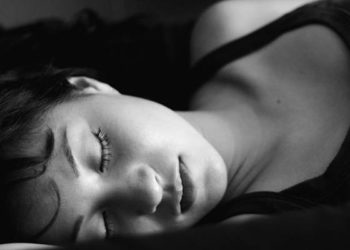High sleep reactivity may negatively impact the relationship between night shift work and insomnia symptoms
1. Sleep reactivity to stress was a moderator in the association between the number of night shifts and insomnia symptoms amongst participants in safety-sensitive professions (such as physicians).
2. With low to moderate sleep reactivity to stress scores, there was a positive relationship between number of night shifts worked per month and symptoms of insomnia.
Evidence Rating Level: 2 (Good)
Sleep reactivity to stress is a concept describing the impact of low coping abilities on sleep. Studies have suggested that physicians experiencing higher sleep reactivity to stress are at increased risk of burnout. The objective of this study was to observe if sleep reactivity to stress may act as a moderator in the association between number of night shifts over the period of one month and insomnia.
In this study, an online survey was widely distributed and targeted towards participants in safety-sensitive professions (such as physicians). Participants first answered questions related to socio-demographics, caffeine intake, work experience, and cigarette smoking. Subsequently, participants completed two standardized scales: sleep reactivity to stress was assessed by the Ford Insomnia Response to Stress Test (FIRST) (high FIRST scores indicating high sleep reactivity to stress); symptoms of insomnia and the degree to which it affected daily function was assessed with the Insomnia Severity Index (ISI).
Results showed that sleep reactivity to stress was a significant moderator in the association between number of night shifts worked per month on symptoms of insomnia. Specifically, high sleep reactivity to stress (high FIRST scores) was correlated with poor sleep, despite working a low number of night shifts per month. Furthermore, at low and medium sleep reactivity to stress, there was a significant positive relationship between the number of night shifts worked and insomnia symptoms. Participant demographics such as age, caffeine intake, cigarette use, and work experience did not significantly impact insomnia symptoms. This study was limited by the fact that the survey was internet-based, participants were self-selected, and more women participated than men. Therefore, results may not be extrapolated to the general population. Nonetheless, this study demonstrated a relationship between insomnia, sleep reactivity and number of night shifts worked, which should be addressed in those more vulnerable working in shift work systems.
Click to read the study in Journal of Sleep Research
Image: PD
©2021 2 Minute Medicine, Inc. All rights reserved. No works may be reproduced without expressed written consent from 2 Minute Medicine, Inc. Inquire about licensing here. No article should be construed as medical advice and is not intended as such by the authors or by 2 Minute Medicine, Inc.







